A useful guide to booking holidays during Covid-19

*We will continue to update this article
Holidays have long sounded like a far off dream, much like summer afternoons spent in the pub or hair salon, during the coronavirus pandemic.
However, with the UK government deciding to relax lockdown measures in recent weeks, dreams of basking in the sunshine on a beach in the Côte d'Azur and eating tapas in a Barcelona taverna may soon be a reality.
After weeks of speculation regarding what the easing of lockdown restrictions will entail, Prime Minister Boris Johnson announced that he planned to reduce the social distancing measure between people by half, to one metre, and to reopen pubs, restaurants, hotels and museums in England on Saturday 4 July.
"Our long national hibernation is beginning to come to an end," he recently told the British public.
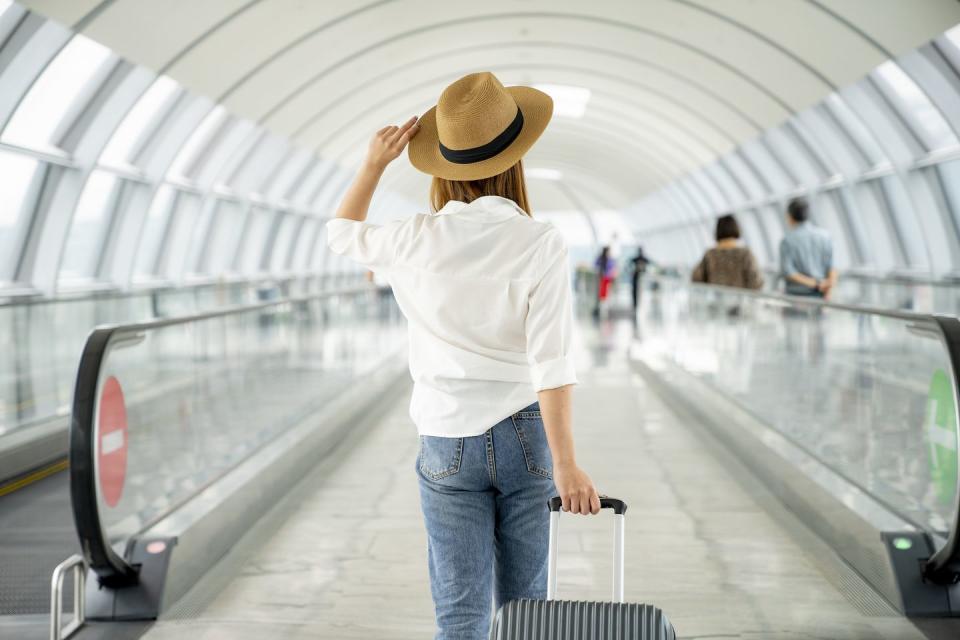
On Wednesday 24 June, transport secretary Grant Shapps said that agreeing "travel corridors" with other European countries was a "massive priority".
As a result, we've rounded up the latest information on travel outside of the UK, including rules on essential travel, quarantine, insurance and flights.
When will people be able to go on holiday?
On 23 June, Prime Minister Boris Johnson finally outlined what Britons can expect from their summer holidays during lockdown.
From 4 July – alternatively known as ‘Super Saturday’ – much of the nation’s hospitality sector reopened. "A new but cautious optimism is palpable," he said prior to its reopening.
Under the new guidelines – which currently only apply in England – people can now stay overnight in self-contained accommodation which includes B&Bs, hotels, self-catering properties and campsites. However, shared facilities must be kept clean.
Holidays in Wales are allowed from 6 July. Meanwhile, Northern Ireland and Scotland are expected to release the latest information regarding their travel restrictions over the coming weeks.
EasyJet has announced it will restart package holidays from 1 August.
What are the current coronavirus travel restrictions?
From 8 June, the majority of travellers arriving at UK airports, ferry ports and international rail terminals have been required to enter a 14-day isolation period once arriving in the UK.
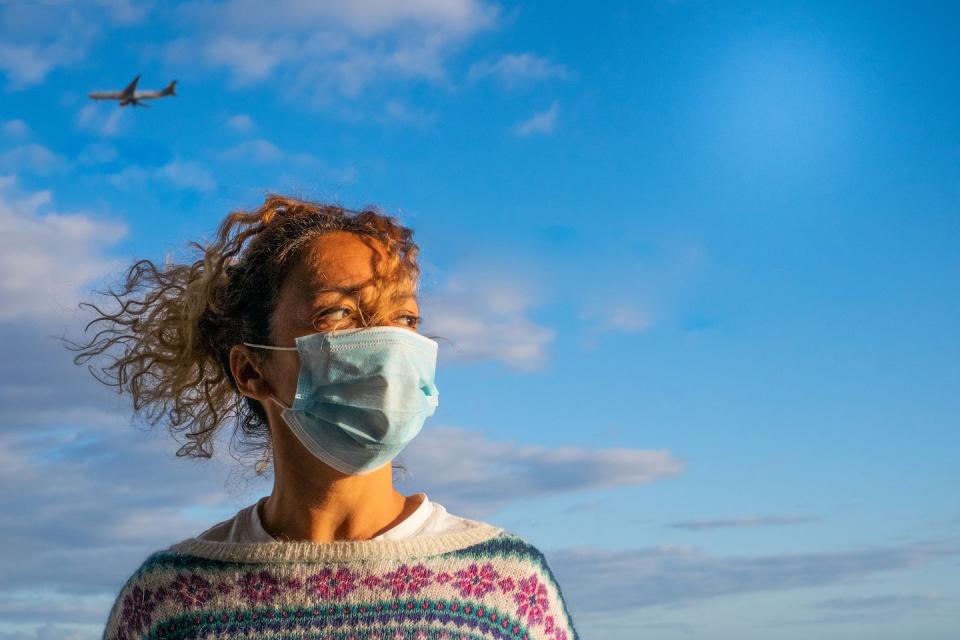
Those who fail to comply with the rules may face a £1,000 in England and ‘reasonable force’ from police to ensure guidelines are followed.
According to government advice, passengers should drive their own car to their destination, where possible. If travellers are unable to provide an address, the government will arrange accommodation at the traveller's expense.
Once arriving at their destination, passengers must not use public transport or taxis, nor go to work, school or public areas. They are also instructed not to go out to buy food, or other essentials, if they are able to rely on others for essential support.
Those exempt from quarantine include those arriving from the Common Travel Area (CTA) - the Republic of Ireland, the Channel Islands, or the Isle of Man – as long as they have been in that area for at least 14 days prior to entering the UK.
Road haulage and freight workers and medical professionals are also among those exempt from the 14-day quarantine rule.
What is an ‘air bridge’ and how does it work?
An air bridge – otherwise known as a ‘travel corridor’ – is a way of allowing travellers from two countries to travel between the destinations without having to quarantine 14 days on arrival in either direction.
Shapps has explained that the bridges would "enable people from other areas who have themselves achieved lower levels of growth virus infection to come into the country".
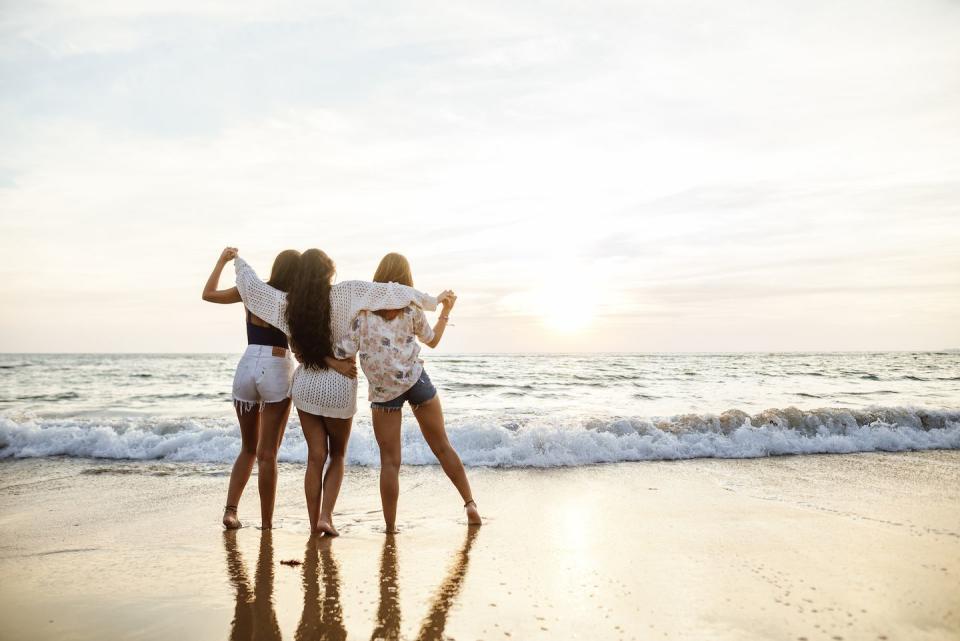
However, some scientists have warned that a second wave of coronavirus is still a real threat and advise travellers to heed the government’s advice when it comes to booking trips abroad.
David Hunter, a professor of epidemiology at Oxford University, has told the Metro: "If you went on vacation to a country thought to be low risk, but while you’re there, there’s a massive outbreak, would you now be handled differently? You probably should be.
"If the countries agree and the rules are clear and the contingencies are clear, then at least people know what they could be in for, whereas if it’s all vague then it’s a bigger risk."
There are currently no air bridges in place between the UK and foreign destinations.
Do you have to self-isolate on return to the UK?
Travellers who arrive England from countries including France, Spain, Germany and Italy will no longer need to quarantine from 10 July, the Department for Transport has announced.
On Friday 3 July, the Department released a full list of except counties posing "a reduced risk" from Covid-19.
The full list of 59 countries and territories include:
Andorra, Antigua and Barbuda, Aruba, Australia, Austria, Bahamas, Barbados, Belgium, Bonaire, Croatia, Curacao, Cyprus, Czech Republic, Denmark, Dominica, Faroe Islands, Fiji, Finland, France, French Polynesia, Germany, Greece, Greenland, Grenada, Guadeloupe, Hong Kong, Hungary, Iceland, Italy, Jamaica, Japan, Liechtenstein, Lithuania, Luxembourg, Macau, Malta, Mauritius, Monaco, Netherlands, New Caledonia, New Zealand, Norway, Poland, Reunion, San Marino, Serbia, Seychelles, South Korea, Spain, St Barthelemy, St Kitts and Nevis, St Lucia, St Pierre and Miquelon, Switzerland, Taiwan, Trinidad and Tobago, Turkey, Vatican City and Vietnam.
Portugal, Canada, China, Brazil, Sweden, Russia and the US were excluded from the list of places holidaymakers can visit without quarantine.
"The exempted countries and territories will be kept under constant review, so that if the health risks increase self-isolation measures can be re-introduced to help stop the spread of the disease into England," it previously explained on its website.
📣 Keep up to date with our latest travel advice by signing up to GOVUK email alerts.
🌎 Alerts are available for each country https://t.co/SWXzorIwgO#coronavirus | #COVID19 pic.twitter.com/lmImbRN3Wa— FCO travel advice (@FCOtravel) May 2, 2020
When planning holidays or overseas travel, the government advises individuals to check the latest FCO travel advice on Gov.uk, "including whether there are any self-isolation measures in place for their outbound or return journey".
On Monday 27 July, Shapps is expected to announce that restrictions to Portugal will be lifted following lobbying from the Portuguese government, the Metro reports.
Where can you currently travel to from the UK?
On Tuesday 23 June, it was widely reported that ministers had been in talks to create "air bridges" with several "core" European countries, including Spain, Italy, Greece, France, Turkey and Croatia.
Additionally, Shapps outlined that there were plans to open up the bridges without the need of holidaymakers having to quarantine following their arrival abroad and when they return to the UK.
He indicated that bridges would only be agreed with places which have implemented a coronavirus test-and-trace system at the same standard as that used in Britain.

A spokesperson from the Department of Tourism previously said that international travel corridors remain an "option under consideration" and "not established policy".
"Conversations take place regularly with governments around the world on a whole range of issues and we will not be providing any further details at this stage," they added.
Here are the current travel restrictions in place in some European countries:
France
The Foreign and Commonwealth Office currently advises British nationals against all but essential international travel.
From 15 June, travellers arriving in France from the UK and wider European area are no longer required to demonstrate their travel is essential or hold an international travel certificate. Those arriving from the aforementioned areas are asked to self-isolate for 14 days on arrival in mainland France and French overseas territories.
Find out more information about the quarantine procedure in France here.
Spain
Spain’s State of Emergency (‘Estado de Alarma’) ended on 21 June meaning that the country’s borders to the European Union and Schengen-area countries (with the exception of Portugal) and travellers from the UK are now open.
Arrivals from the United Kingdom are not required to self-isolate on arrival but must face a series of three health checks.
Face masks are compulsory on public transport and in public spaces where it is not possible to maintain social distancing of 1.5 metres.
Greece
At present, mandatory testing and self-isolation are in place for anyone arriving into Greece from an airport listed by the European Aviation Safety Agency (EASA), regardless of nationality.
Every visitor to the country must also apply for a Passenger Locator Form (PLF) at least 24 hours before departure. Travellers will receive the PLF with their unique Quick Response (QR) code on the day of their scheduled arrival in Greece.
The government in Athens asks: "Detailed information on their point of departure, the duration of previous stays in other countries, and the address of their stay while in Greece. In case of multiple stays, they are required to provide the address for the first 24 hours at least."
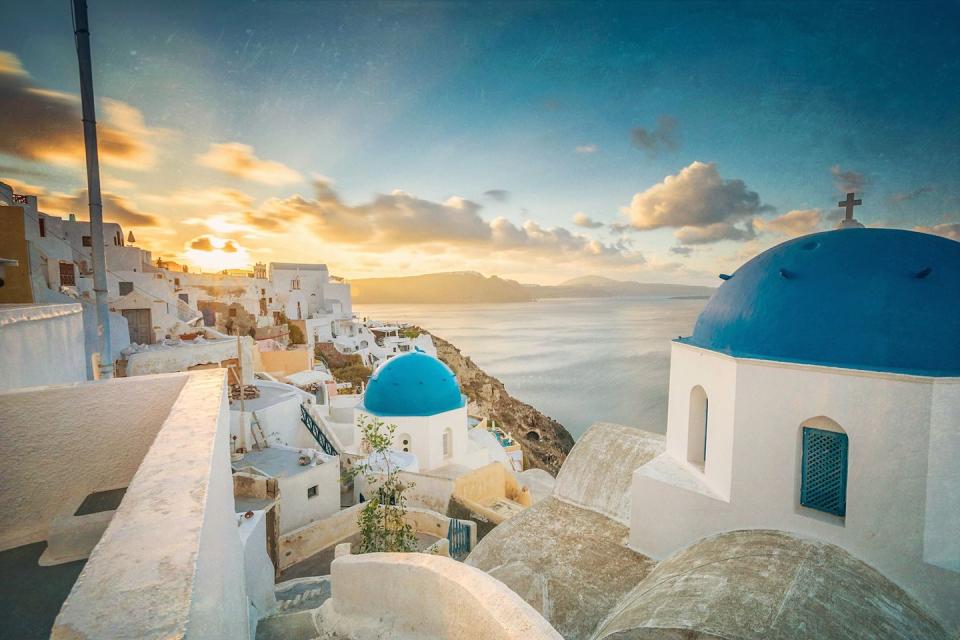
If you are travelling via ferry, you will need to complete a health questionnaire and hand it to the ferry operator before boarding. Face masks will also be compulsory, in addition to wearing them on internal (domestic) flights.
Specific measures relating to check-in, baggage allowances and other details are in place to reduce the spread of coronavirus so it is advisable to check with operators directly for more information.

Greece’s tourism minister, Haris Theoharis, said on 25 June that a decision between the UK and his country regarding a possible bridge will ‘be in place in the next few days.
"The point is that Greece is a safe country - we have proven that during this crisis and we will continue proving this in the exit stages of the health situation," he told Radio 4.
Portugal
Portugal's foreign minister, Augusto Santos Silva, had said that anyone in the UK planning to go to Portugal this summer will be "most welcome".
However, the country was left out of the UK's list of counties Westminster deemed safe enough for English holidaymakers to travel to without coronavirus-related restrictions.
How safe is flying during the coronavirus pandemic?
While there is still a lot of research that needs to be conducted into the spread of the virus on aeroplanes, there have been reported cases involving passengers transmitting the virus to others, in the media.
In addition, previous research has shown that viruses including SARS, influenza and smallpox have spread on aircrafts.
According to the NHS, the virus can be spread when respiratory droplets carrying infectious pathogens "travel directly from the respiratory tract of an infectious individual to susceptible mucosal surfaces of a recipient, generally over short distances.
"This can be in the form of sneezing, coughing or speaking."
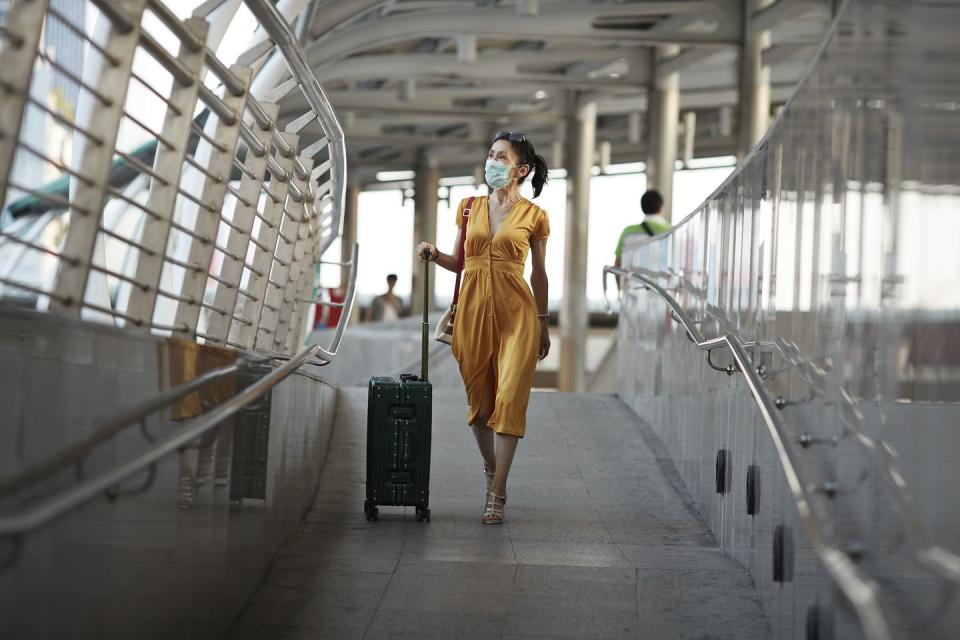
In recent weeks, several airlines have implemented new measures to try to mitigate risks of infection during travel which have included leaving space between passengers empty. Meanwhile, London’s Heathrow airport has made it compulsory for all passengers and staff to wear face masks. Hand sanitiser is also available at over 600 kiosks throughout the airport and temperature screening is being tested.
But, if you’re planning on hopping on a flight to a European country as soon as possible, you might want to keep hold of your purse for a while longer, the BBC suggests.
On 25 June, Jet2 and Eurostar announced that they plan to cancel some summer flights and trains in 2020 and 2021 due to the health crisis, meaning that many locations might still be out of bounds.
As of July, Easyjet hopes to fly 50 per cent of its 1,022 routes, and 75 per cent by August, the Telegraph reports. Some of its first international routes include Paris, Milan and Barcelona.

Boarding protocols, restrictions on on-board toilets and rules regarding face masks vary between airlines so it is important to consult rules prior to travel.
You can find a very useful list of travel bans, restrictions and flight plans on Skyscanner here.
What precautions should I take while travelling during Covid-19?
According to the World Health Organisation, there are several ways individuals can try to reduce the spread of the virus.
Its recommendations include:
Perform hand hygiene frequently, either with soap and water or with an alcohol-based hand rub.
Cover your nose and mouth with a flexed elbow or paper tissue when coughing or sneezing and disposing immediately of the tissue and performing hand hygiene
Refrain from touching mouth and nose
A medical mask is not required if exhibiting no symptoms, as there is no evidence that wearing a mask – of any type – protects non-sick persons. However, if masks are to be worn, it is critical to follow best practices on how to wear, remove and dispose of them and on hand hygiene after removal. You can find out more information from WHO on this issue here.
In April, the WHO stated: "Although the medical profession and the travel industry can provide extensive help and sound advice, it remains the traveller’s responsibility to seek information, to understand the risks involved and to take the necessary precautions to protect their health while travelling.
Will I be covered on insurance if I travel during Covid-19?
As many of us are still waiting for refunds on cancelled flights and accommodation bookings for holidays this summer, many people will be cautious about hastily booking another holiday any time soon.
When it comes to insurance for holidays, it’s imperative that you find out whether you will be covered for travel.
Financial expert Martin Lewis explains on his website, Money Saving Expert, that if you already have travel insurance and plan to go on holiday, you may be covered for Covid-19 cancellations.
However, this entirely depends on when you booked your holiday and bought your travel insurance.
Policies for holidays booked in mid-March, when the FCO warned against all non-essential travel, "should cover you for cancellation while the office’s restrictions remain in place," he notes.

Travellers should also be covered if restrictions are relaxed and then reimposed, as long as they booked before the FCO advice changed. However, if you booked a holiday after the advice changed, you are not covered for cancellation.
"No mainstream policies will cover travel while the FCO continues to warn against it, nor if that's lifted and your holiday's cancelled due to future UK or other countries' coronavirus travel restrictions," he explains.
"However, some (not all) new policies will cover medical costs relating to coronavirus if you catch it overseas or if you or a family member get coronavirus before travelling and then can't travel."
As a result, it's advised that you check with your current insurance policies prior to booking any future holidays.
What kind of accommodation can you stay in from 4 July?
As of 4 July, holiday makers can stay in accommodation like cottages and campsites. However, as a result of the PM's new "one-metre plus" policy, many hotel spas and swimming pools will remain closed.

In light of the government's announcement, holiday cottages in England experienced their busiest day ever for bookings on 23 June, resulting in a frenzy of holiday makers increasing demand and some bookings being made within an 11-second window.
The Guardian reports that Glamping company Canopy and Stars saw a 230 per cent increase in traffic to the site in the hour after Johnson’s speech which Log House Holidays, a collection of cabins in the Cotswolds, were taking bookings while Johnson was making his announcement.
An Airbnb spokesperson told Elle UK that in light of the PM's announcement, daily domestic bookings on Airbnb in the UK doubled from Monday 22 June to Tuesday 23 June alone.
In order to prioritise safety, they added: "We have developed a new Cleaning Protocol for hosts globally, in partnership with leading experts in hospitality and medical hygiene. In the UK specifically we have also supported Government and industry efforts to develop local guidelines."
In need of some at-home inspiration? Sign up to our free weekly newsletter for skincare and self-care, the latest cultural hits to read and download, and the little luxuries that make staying in so much more satisfying.
Plus, sign up here to get Harper’s Bazaar magazine delivered straight to your door.
You Might Also Like

 Yahoo News
Yahoo News 
